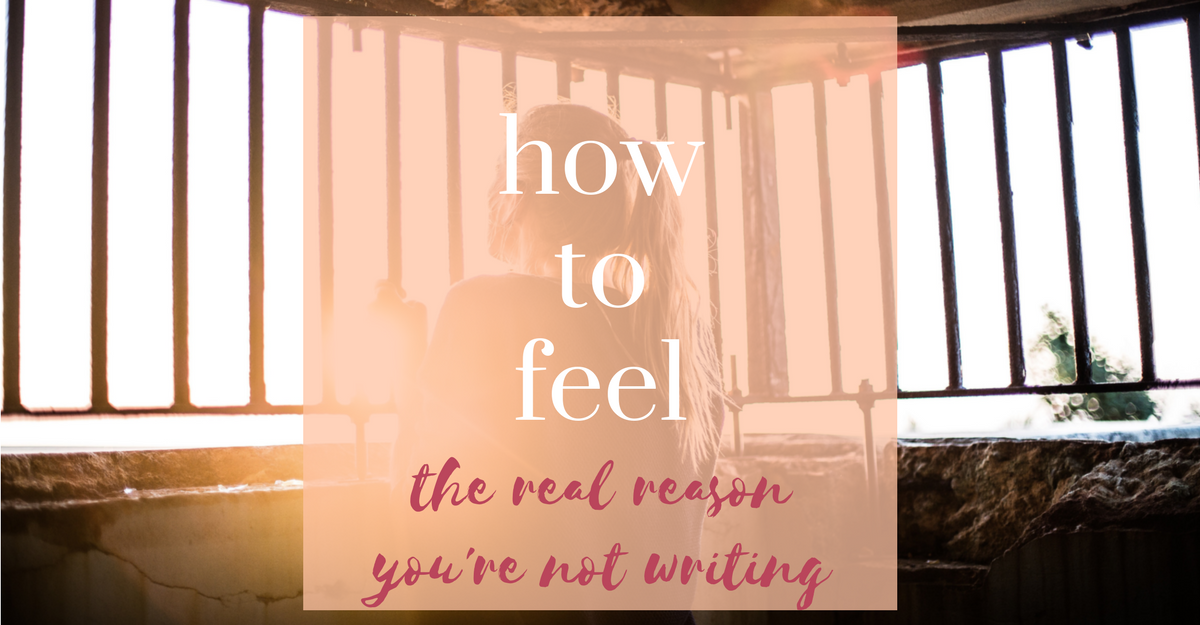New year’s resolutions to get you writing: a three-step process
/Fun fact: only 8% of people stick to their new year’s resolutions.
I suppose these are also the people who clear their email inboxes every day, load dirty dishes directly into the dishwasher, and walk past bowls of peanut M&Ms with nary a second glance.
Meanwhile, the rest of us let unfinished business and milk-spotted cereal bowls pile up. We hate the M&Ms for existing, for tempting us with their bright colors and empty calories. And if we succumb, we hardly taste the candy over the self-recrimination in our heads.
All of this would be fine, if only we didn’t judge ourselves so harshly for it.
If you’re reading this, perhaps one of your new year’s resolutions is to write. Or perhaps you want to write so badly that you’re afraid to turn it into a resolution, because God knows you’ve been burned before.
When we have a history of breaking our word to ourselves (and I most certainly do), then setting resolutions or goals or intentions can seem like the surest way to fail at something. Our brains aren’t stupid. After years of failed diets (ugh), unused gym memberships, and blank gratitude journals, we build neural associations between embarking on new initiatives and letting ourselves down.
So we stay stunted, wishing for something greater, something radical and authentic and more meaningful than checking our phones six hundred and eighty times a day, but afraid to go for it.
(Another fun fact, in case it isn’t obvious: by “we,” I mean “I.”)
If any of this resonates with you and you want to write in 2017, the worst thing you can do is set yourself up to be disappointed—yet again. So if you’re coping with grief or anxiety or depression or wedding planning or major home renovations, go easy on yourself. (Easier said than done, I know.) Question whether you need to set any resolutions at all.
If you do want to proceed, here’s a three-step process for new year’s resolutions that will help you get words on the page with a minimum of self-loathing.
Step one: Forgive your sins.
Neural connections take a long, long time to wither away. If you’ve broken your resolutions in the past, chances are that your brain still associates new year’s resolutions with that time you are an entire chocolate cake, sliver by microscopic sliver, on January 8th. Sure, your brain builds new connections all the time, and as you keep your word to yourself in the future, it will come to associate your goals and resolutions with success.
But in the meantime, do what you can to forgive your sins of new years’ past. Have you put off writing a memoir for more years than you can count? Abandoned a journal? Neglected a blog? Let thousands of ideas go to seed even though you saw their promise, even though you cherished them?
It’s time to move on. Those decisions have nothing to do with who you are or what you can do now. We all let ourselves down at times, and the sooner we forgive ourselves, the sooner we can drag ourselves from the muck of self-sabotage and get back to work.
Don’t believe me? Check out this study.
Step two: Make it so easy you want to roll your eyes.
Grand gestures are tempting, aren’t they? Just think of that girl who quit her job via YouTube video, or the ending of An Officer and a Gentleman, or proposals at football stadiums, twenty thousand people watching a diamond ring sparkle on the jumbotron.
In 2015, I resolved to finish a novel in eight weeks—never mind that my dad had just died and I was barely able to scrape myself off the couch to buy groceries. Never mind that I’d never written a novel before. I’ll bet you can’t guess how that one worked out for me.
Grand gestures are glorious, and sometimes they work. But all too often they set us up for disappointment. All too often we end up having to jam the ring back in our pocket and sulk off the field, feeling as if the whole world can see our failure and heartbreak.
So start small. Like, ridiculously small.
BJ Fogg, a Stanford psychologist, recommends that people aim to floss one tooth per day. That’s it: one tooth. About two seconds’ effort. It’s so preposterously simple that people don’t procrastinate doing it.
Here’s the trick, though: once you’ve walked to your bathroom, cut a piece of floss, and stuck it between two teeth, chances are that you’ll keep going and floss the rest of your teeth. Whereas if you’d seen your options as all or nothing—as either flossing your entire mouth or lying in bed watching Netflix—you might never have started in the first place.
Make your writing resolutions the equivalent of flossing one tooth. Maybe you resolve to write a paragraph every day, or even a sentence. Maybe you promise to open your journal every night and write the date. Whatever it is, make the resolution so small that it seems pointless.
Once you open your word processor or get your pen at the ready, though, you might keep going. You might unlock a new line of thought and find words flooding the page. Or you might make incremental progress that, over the course of the year, actually adds up to something.
Even if you do the minimum, even if you can’t manage anything more than pulling out your notebook before bed and scribbling the damn date, you’ve still kept your word to yourself. Your brain will still come to associate resolutions and goal-setting with following through.
Which just might be the secret to your future success.
Step three: Stop. No more resolutions.
Remember 2015? Oh, 2015. In addition to finishing a novel in eight weeks, I set out to meditate every day, write morning pages, keep a gratitude journal, give up desserts, cut back on caffeine, dress better, pack my lunch, work out every day, wake up earlier, and read affirmations to myself before bed.
I hired a life coach. I downloaded an app to track my progress. But by the end of February, I was bingeing on chocolate-covered pretzels instead of meditating. Instead of writing, I was staring blankly out the train window during my commute, my head swimming with vague, mean thoughts about how I always flake on things and I should have known this would be no different.
Do yourself a favor: set one resolution for 2017. Just one. And then stop.
If you need an app to track your progress on thirteen different metrics, stop.
If you want to quit sugar and take up running and knit hats for the homeless and write a novel in verse, stop.
If just thinking about all the willpower you’ll have to muster makes you want to hide in a carpet roll, stop.
That’s not to say that you can’t try out more than one change at a time, or that you can’t start training for a 5K in April. But focus on just one resolution for now.
Bonus step: Plan to fail.
Gretchen Rubin is one of those rare people who can juggle about fifty different resolutions at once. If you’ve read The Happiness Project, you know what I mean.
Even Gretchen plans for failure, however. In Better Than Before, her recent bestseller, she recommends developing “safeguards” for any new habits you develop. Imagine some challenges that you’ll likely encounter regarding your writing resolution. If you wake up one day and just don’t feel like setting pen to paper, how will you proceed? If the power goes out, how will you cope? What if you oversleep? What if you have to go to an early meeting?
You should also make a plan for how you’ll deal with any lapses. If you get sick and miss a few days of writing, if you go on vacation or leave town to take care of a sick relative, how will you get back on track once things quiet down? We all slip up from time to time. The trick is to forgive yourself, move on, and prevent a temporary lapse from turning into a permanent defeat.
My resolution:
All right, folks. In case you’re curious, here’s my resolution for 2017.
Every morning, I’ll set the SelfControl app to block any time-wasting websites for an hour. Then I’ll open the Word documents for my current works-in-progress. And… that’s it. If I write, I write. If I close the documents and stare out the window or sneak off to the kitchen and fix a second breakfast, I’ve still kept my word to myself.
And that’s a good feeling.











